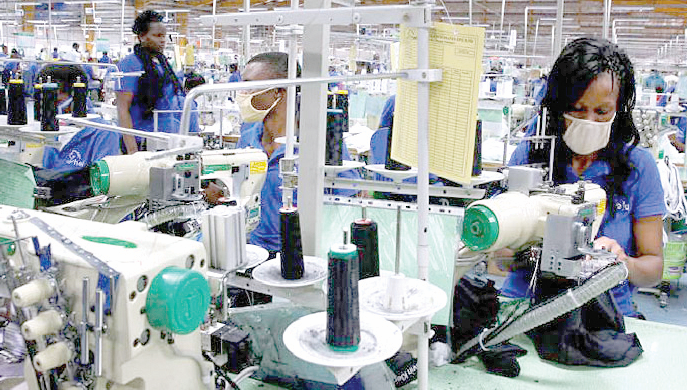Business activities fall in March on lower demand
By Noel.Wandera, April 5, 2024Kenyan businesses are navigating a challenging landscape marked by declining sales, attributed to reduced consumer spending and intensified competition.
The Stanbic Bank Kenya Purchasing Managers’ Index (PMI) fell to 49.7 in March from 51.3 a month earlier. Readings above 50.0 signal growth, while those below point to a contraction.
In February, it was the first time since August that the figure had gone above 50.
The current business trends are creating cash flow constraints that may impede businesses’ ability to invest in expansion or meet financial obligations, according to the bank. Firms have, however, responded to weaker sales by reducing their purchases of inputs, recording the sharpest decline since last November.
Slight deterioration
The latest drop in the anchor PMI below the neutral 50 mark in March 2024 indicates a slight deterioration in operating conditions, contrasting the previous month’s improvement, which marked the first positive change in six months.
To navigate this downturn, businesses are compelled to implement operational adjustments, including cost-cutting measures, organisational restructuring, or strategic realignments.While private sector activity softened in March, Economist Christopher Legilisho from Standard Bank notes positive signs for the future.
He anticipates that a slowdown in inflation and a stronger shilling will eventually boost consumer demand and support business expansion.
According to Legilisho new orders and purchasing activity contracted in March due to fewer sales and less readily available cash flow. “Despite lower inflation, a stronger shilling against the USD in March, and increased marketing efforts, cost of living pressures are still subduing consumer demand,” Legilisho said.
Despite the overall decline, some positive signals emerged from the survey data, with staffing and inventories showing growth, signalling potential opportunities for expansion.
“That said, positively, firms continued to hire and increase inventories because they foresee improved demand. Though off a low base, business expectations for 2024 recovered somewhat, led by wholesale and retail services firms; the index for future expectations had hit the weakest level on record in February,” Legilisho said.
Input cost inflation slowed to its lowest level in over three years, with savings passed on to customers as output prices rose at a slower pace. Moreover, expectations towards future output rose to a four-month high, indicating optimism for future growth, particularly in services and wholesale and retail sectors.
Companies also observed a relaxation in pressure on input, purchasing, and output prices, driven by a decrease in fuel prices and the strengthening of the Kenyan shilling against the US dollar in March to exchange at Sh131 against the greenback.
Market conditions
During that period, staff costs remained steady for the second consecutive month, further supporting business stability amidst challenging market conditions.
According to the survey,Kenyan firms generally passed on higher input costs to their customers in March, resulting in a moderate rise in selling charges.
However, the rate of charge inflation eased to the lowest level since January 2022, reflecting the softer input price inflation. Agriculture saw a much greater increase in charges compared to other sectors.
More Articles

